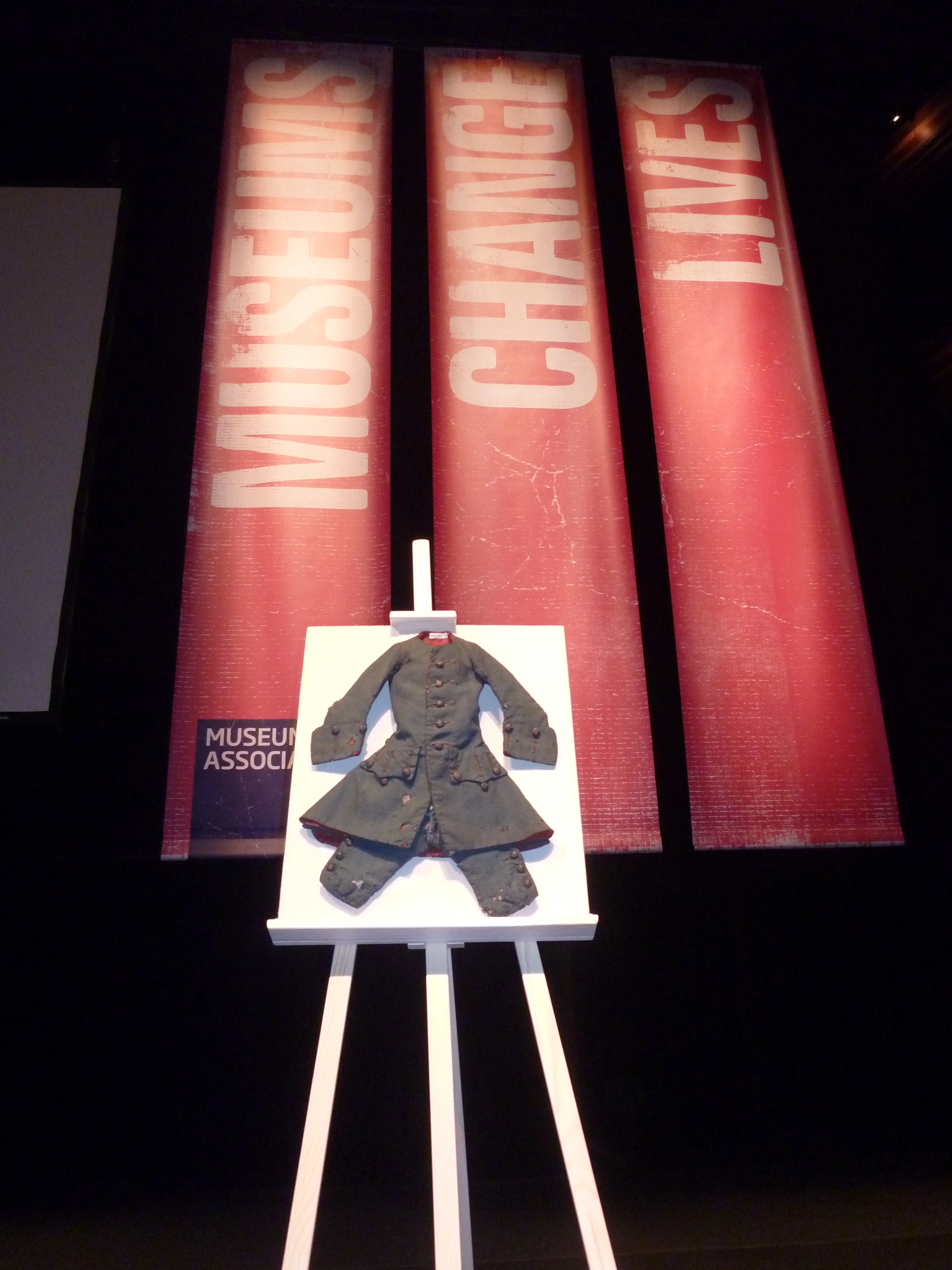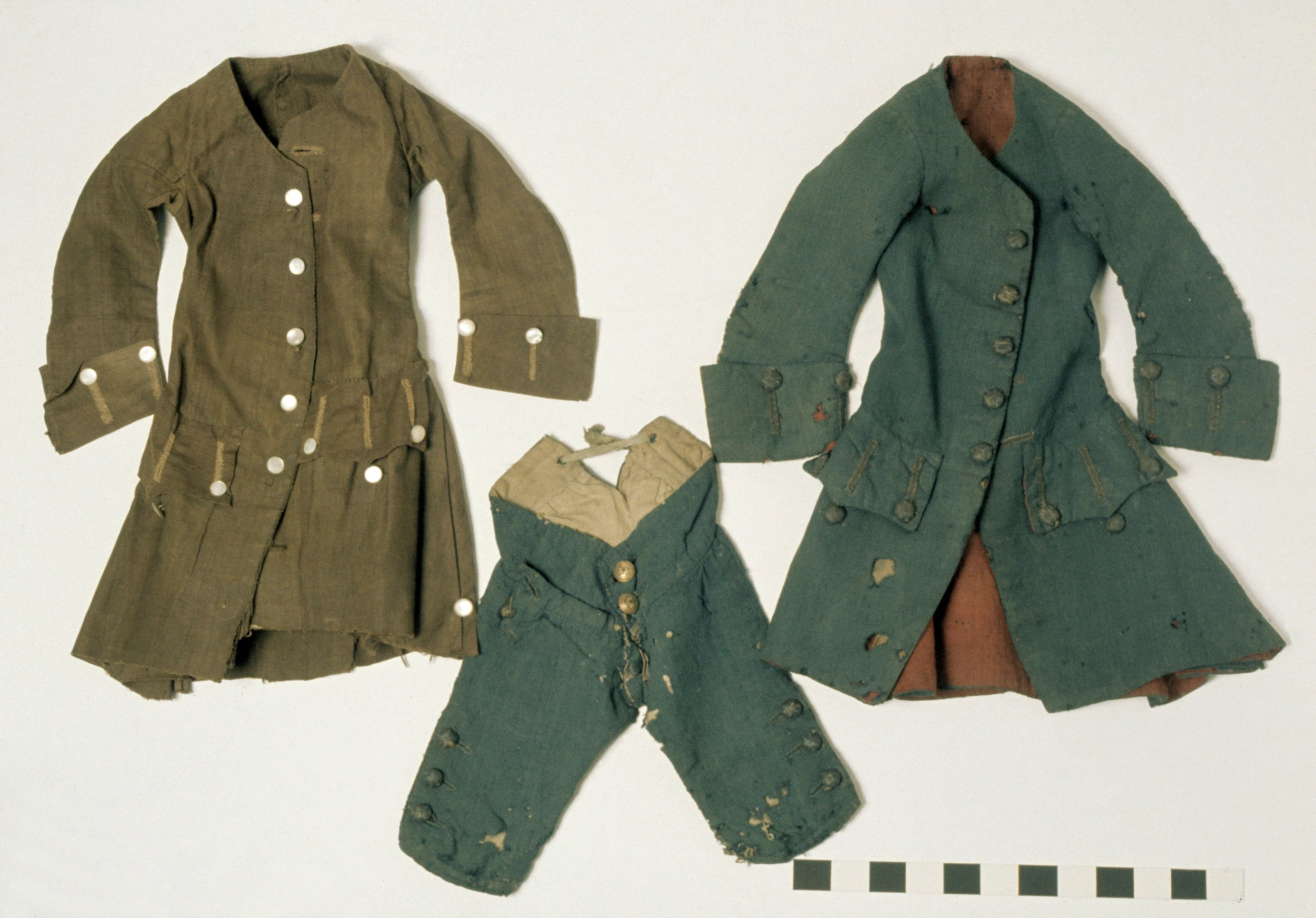UK Disability History Month - "The wonderful and surprising Little Welchman"
, 17 December 2015
Following on from Sioned’s blog about our work with Mat Fraser in 2014 and the anonymous ‘invalid chair’ she found in the collection, in this blog I’ll be discussing another object which featured in Mat’s performance – an 18th century woollen suit from the Llantrisant area.
Unlike most of the disability-related collections in the Museum, the suit in question comes with a personal story and a file bulging with snippets from local history books. Worn by Hopkin Hopkins – better known as ‘Hopcyn Bach’ [Little Hopcyn] – the frock coat and matching breeches are among the oldest items of clothing in the collection. They were acquired by the Museum in 1920, before it was common practice for curators to document their reasons for accepting artefacts into the collection.
Hopkin Hopkins (1737 - 54) was born with a growth restricting condition. His physical appearance became a source of income for his family. It may seem repugnant to us today, but at the age of 14 he was taken to London by his parents and shown publically for money. Billed as “the wonderful and surprising Little Welchman”, his perceived ‘freakishness’ was a source of entertainment in polite society. In 1751, Hopkin was presented to the Royal Family who gave him a gold watch, an annual pension and ten guineas for each appearance he made at Court.
In the same year, he was also ‘on display’ in Bristol. This vivid account of the visit is taken from a letter sent by John Browning in September 1751:
I am just returned from Bristol where I have seen an extraordinary young man, whose case is very surprising; he is shewn publicly for money, and therefore I send you the printed bill, which is given about to bring company… I went myself to view and examine this extraordinary, and surprising but melancholy subject; a lad entering the 15th year of his age, whose stature is no more than 2 feet and 7 inches, and weight 13 pound, labouring under all the miserable and calamities of old age, being weak and emaciated, his eyes dim, his hearing very bad, his countenance fallen, his voice very low and hollow; his head hanging down before, so that his chin touches his breast, consequently his shoulders are raised and his back rounded not unlike a hump-back, he is weak that he cannot stand without support. [Letter from John Browning to Henry Baker, 12 September 1751. Quoted in Sem Phillips, The History of the Borough of Llantrisant, 1866.]
How did Hopkin feel about being an object of curiosity? We simply don’t know. Although we have numerous descriptions of his body, his voice is missing from the narrative.


